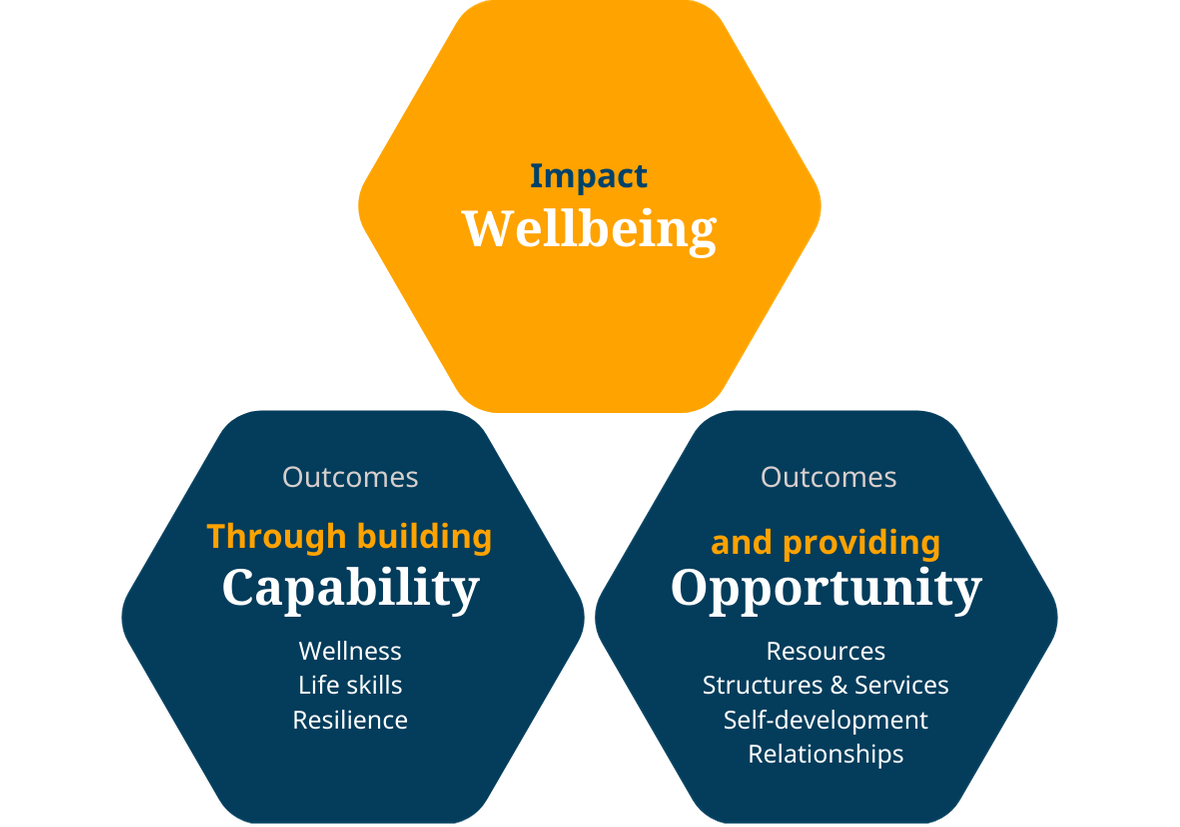
Impact Measurement and Management
Impact Measurement and Management
Working across the private and social sector globally, Huber Social holds wellbeing as the measure of success for humanity and works with organisations to measure and create social impact.
To evaluate initiatives, Huber Social establishes a measurement system to measure shifts in wellbeing (Impact), as well as shifts in the capability and opportunity needs of people (Outcomes).
Data is collected from the people directly impacted and statistical analysis is employed to identify shifts in wellbeing and the relative needs of people to maximise their wellbeing. The process involves a co-design approach and ensures accurate and ethical data collection.
Outcomes of Huber Social’s Measurement
-
The shift in wellbeing of impacted people and specific programme outcomes achieved, providing evidence to stakeholders and the community.
-
Measuring wellbeing provides a data driven profile of the needs and aspirations of people to inform programme design and identify opportunities to maximise impact. In particular, Huber Social employs statistical wellbeing evaluation to identify priority needs so that resources may be directed for the greatest impact.
-
Independent third-party measurement brings rigour and integrity to the findings to strengthen the position of your organisation as leaders in social impact.
-
Beyond once off evaluations, we deliver you a measurement system for ongoing use. Once in place, the measurement system can measure impact year on year or be rolled out across other programmes and locations.

“What you have done with the wellbeing measures over the years is profound and has had a significantly positive impact on our children and young people.”
"We are understandably very proud of being recognised for our ‘outstanding work in assisting homeless and disadvantaged youth’ and wish to celebrate with the key people who made it all possible. Most notably, this is you, Huber Social."
- Jason Juretic, CEO, Stepping Stone House
How Huber Social Measures Wellbeing
Recognising wellbeing is a unique recipe for each of us, there are two parts to how Huber Social measures wellbeing.
To measure overall wellbeing, Huber Social measures subjective wellbeing (how people are experiencing their lives), measured in terms of Satisfaction with Life.
To understand the needs, aspirations and priorities of people in the context, Huber Social then measures capability and opportunity outcomes, employing statistics to identify which factors have a unique and driving relationships with overall wellbeing.
The Huber Social Wellbeing Measurement Framework™
Our Process
-

Co-design of the Impact Measurement and Management plan (Framework)- including who, what and how impact will be measured and findings used.
-

Tools and team ready for accurate and ethical data collection. All Huber Social projects are subject to an Independent Ethics Review via the Huber Social Ethics Review Board.
-

Qualitative and quantitative data collected with surveys as the main tool, along with interviews, focus discussion groups and mapping of secondary data sources.
-

When reporting on findings, we do so in a way that is accessible, actionable, and meaningful for audiences, creating engaging narratives to move our clients forward on their impact journey.
How we work
Huber Social believes in the power of connection. We invest in building strong relationships and stand for the success of our clients and partners.
We are committed to scientific, cultural and ethical integrity. We recognise measurement as a scientific pursuit, designing projects to grow collective knowledge, and we are transparent about the power and limitations of findings.
To ensure measurement accurately reflects the needs and values of those impacted, we practice cultural safety, working to actively manage our own perspectives and biases and to enable all voices to be heard.



